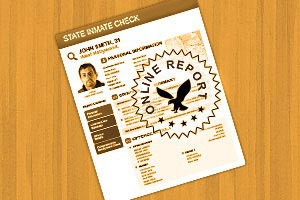Michigan Public Records
The Michigan State Records website provides every Michigan resident with tools to access public records. This ensures Michigan residents are able to use their right to access and obtain public records in accordance with the Michigan Freedom of Information Act, which presumes all government information and records are available to the public.
The tools on this website help to ensure that all members of the general public have the right and ability to access these records easily and concisely, without necessarily requiring personal information (unless otherwise specified by a constitutional or statutory law, or by a court decision.)
Michigan State Records contains information about criminal records, court records, vital records and includes over 89 million transparent public records.
Are Michigan Records Public?
Yes. Except where restricted by law or court order, most government-generated records are open to the public. Michigan's Freedom of Information Act permits access to any writing owned, used, or prepared by a public body during the performance of an official function. This includes records produced by a state officer, agency, bureau, division, or council. Michigan public records may exist in different recorded forms, such as typewritten documents, digital recordings, and photographs. It may also include paper tapes, microfilm, punched cards, or information preserved via other recordings.
What is Considered Public Information in Michigan?
Some examples of Michigan public records include:
- Michigan arrest records
- Michigan criminal records
- Michigan inmate records
- Michigan property records
- Michigan bankruptcy records
- Michigan marriage records
- Michigan divorce records
- Michigan birth records
- Michigan sex offender information
Note: In 2021, the Michigan Supreme Court ruled that personal information such as birth dates would no longer be categorized as public records.
The Michigan Freedom of Information Act allows citizens to access public records. As a result, interested individuals can conduct a paid or free public data search to retrieve such records from government agencies (like a county sheriff's office) or independent public record providers. Usually, one must submit a public records act request to an official custodian to view or copy public records. Sometimes, these agencies provide electronic access.
How Do I Find Public Records in Michigan?
Any person can obtain copies of a record by making a request to the record custodian. Michigan's state law obliges public agencies to make records available once they receive a request unless the record is protected by law or state statute. Record seekers can find public records in Michigan by following several basic steps.
Step 1. Determine the type of record required
The information needed by a requester typically determines the type of record to be requested. Public records fall under different categories and some examples include but are not limited to:
Vital Records: These are records of birth, death, marriage, divorce, among others. Vital records are usually created by local public bodies and in most cases, this type of request is mainly restricted to the owner of the request or immediate relatives.
Criminal and Civil records: Criminal records provide information about offenses against the state. Offenses in this category are usually violent crimes and are prosecuted by the state because they are considered harmful to the state. Examples of criminal offenses are rape, child abuse, arson, assaults, murder, among others. Unlike criminal records, civil records contain information of private disputes between individuals that do not have direct harm to the state. Examples of civil offenses include property disputes, tenant/landlord disputes, and personal injuries, among others.
Step 2: Determine the government agency with the records
To obtain a public record, requesters must direct their request to the right state department. For instance, if a requester intends to find records about marriages, divorces, births, and deaths in the State of Michigan, the responsible public body is the Michigan Department of Health and Human Services. However, if the request is for a prison inmate's record, the correct state department to submit the inquiry to is the Michigan Department of Corrections. In a similar way, a request for court records should be sent to the Michigan Judiciary, the state repository for court records.
Step 3: Determine accessibility
Every legal citizen has the right to obtain public records in the State of Michigan. However, some records may not be divulged to all members of the public if they fall under the category of FOIA exempted list. As a result of this, any interested member of the public must first determine if the particular record intended to be requested is accessible by the general public. For instance, vital records will be available to individuals who are the owners of those records and their immediate relatives while records containing the security plans and architecture of the government will not be made available to the public to avoid compromising state security.
Step 4: Determine the Availability
Some public records may be accessed online. However, some records with sensitive information will not be found online and requesters may have to visit public bodies offices in person to obtain such records.
Step 5: Contact the Record holder
Record requesters may contact the Record holder via a written request. The written request should contain sufficient information to assist with the search. Requests can be sent via email and may be made physically. Requests sent electronically are usually received by Record holders the next working day.
Using Third-Party Sites to Find Public Records in Michigan
City Records
Public city records may also be accessible from third-party websites. These non-government platforms come with intuitive tools that allow for expansive searches. Record seekers may either opt to use these tools to search for a specific record or multiple records. However, users will need to provide enough information to assist with the search such as:
- The name of the subject involved in the record (subject must be older than 18 or not juvenile)
- The address of the requestor
- A case number or file number (if known)
- The location of the document or person involved
- The last known or current address of the registrant
Third-party sites are not sponsored by government agencies. Because of this, record availability and results may vary.
Public Records
Public records can also be accessed from third-party websites. These third-party public records aggregate websites offer search services that are non-geographically limited, making the search result expansive and typically straightforward. However, users will need to provide enough information to assist with the search, such as:
- The name of the subject involved in the record as long as the subject is not a juvenile
- The last known or location of the record subject
Third-party public records search websites are not government-sponsored services. Therefore, the availability and accuracy of results can vary.
How Do I Look Up Public Records in Michigan for Free?
Record seekers who wish to obtain Michigan public records at no cost may request a physical inspection of the record at the custodial government office. Depending on the government agency, interested parties may also be able to obtain public records online at no cost. For instance, residents can conduct a free public records search for Michigan inmate records or Michigan sex offender registry using the online tools provided by the Michigan Department of Corrections and State Police. Furthermore, residents interested in county-specific records can use search tools provided by a county clerk's office (also the register of deeds office) to view or copy public records for free. However, record seekers who wish to obtain physical copies of any record will almost certainly have to pay a fee for printing, duplication, or reproduction.




